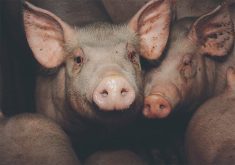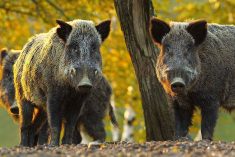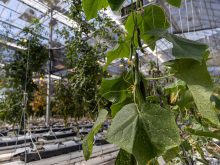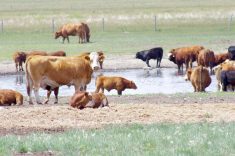A leading American scholar came north bearing good news for Canadian farmers – expect a levelling of the farm-subsidy playing field and new opportunities to profitably feed a hungry planet.
The Canola Council of Canada brought Robert L. Thompson to its annual meeting here and the scholar from Johns Hopkins University delivered a hopeful message to delegates, including a prediction that Washington will soon have no choice to cut its massive farm subsidies.
“It seems pretty clear that direct payments are on their way out,” said Thompson, adding that “almost inevitably there is going to be some rationalization to reduce the redundancies” when the next farm bill is developed in 2012.
Read Also
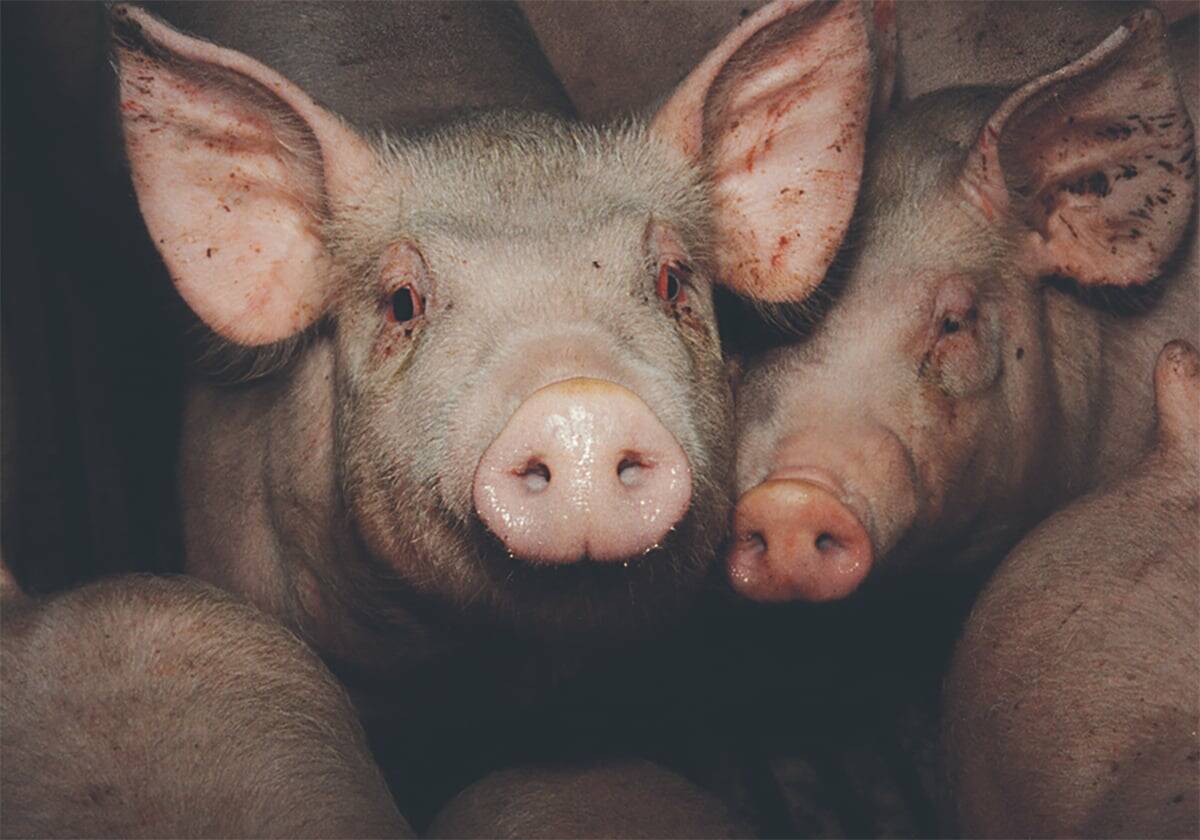
Scientists discover cause of pig ear necrosis
After years of research, a University of Saskatchewan research team has discovered new information about pig ear necrosis and how to control it.
With a $1.5-trillion budget deficit and $14.2-trillion debt, Washington will simply no longer be willing to hand out $4 billion to $5 billion a year in subsidies at a time when U.S. farmers are enjoying record income, he said.
“(P)olitically there is no way they’re going to survive,” he said. “They’re going to be the first thing cut.”
Policy-makers are considering whole-farm revenue insurance to replace existing supports – which currently see direct payments overlap with counter-cyclical payments and loan deficiency payments, he said. There’s also federal disaster assistance and subsidized crop insurance.
“In fact, I keep telling American audiences they really need to come up and look at the various approaches you all have taken to revenue insurance (in Canada),” Thompson said. “You’ve been down a few blind alleys but you’ve backed out of them if they weren’t exactly right and tried something different and I hope the U.S. can learn from that experience.”
National security
American farm groups argue food production is critical to national security and therefore subsidies are justified. Not so, according to Thompson, who said in an interview that agriculture is a relatively small part of the U.S. economy.
As well, two-thirds of American farm production is unsubsidized, he noted.
“It’s a very inequitable program that we have today with basically five commodities getting 93 per cent of the benefits,” he said. “So it’s not clear cut that this is such a winning program from the viewpoint of the country as a whole.”
Subsidy cuts could result in commodity groups competing for what few resources are left, Thompson said.
“In the past there has always been a threat of that, but in the end there has always been enough money on the table the commodity groups haven’t gone for each other’s jugular, but we may actually see that for the first time,” he said.
Thompson also predicted demand for food in developing nations is going to be key to the future profitability of farmers, and once again had hopeful news for Canadian producers.
The world will add the equivalent of two more Chinas in the next 40 years – or 2.6 billion people, he noted. But with its red-hot economy, one-third of China’s population have to get by on less than $2 a day while worldwide an estimated 1.4 billion people live on less than $1.25 a day.
Their battle for a better life is one that farmers in Canada should be watching, said Thompson, who has extensive experience in agriculture in developing countries, including a stint as director of rural development for the World Bank.
“This is the critical point – the number of people who move successfully from $1 to $2 (a day in earnings) up to about $10 per day is probably the single most important factor driving future demand for food as we look out through this century,” he said.
“That’s the challenge and the opportunity for efficient producers wherever they are in the world.”
———
“It’saveryinequitable programthatwehave todaywithbasicallyfive commoditiesgetting93 percentofthebenefits.”
ROBERT L. THOMPSON


